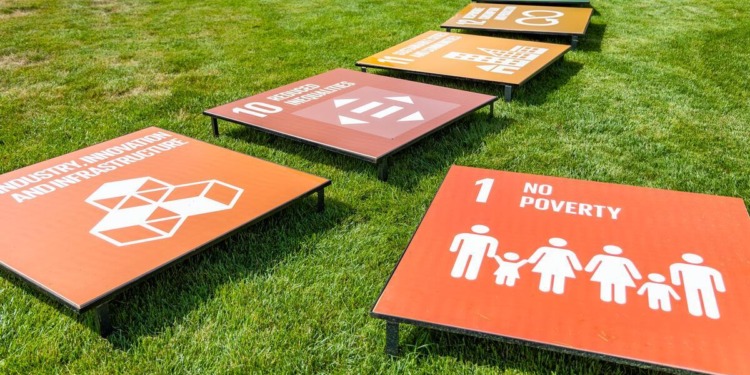The UN Economic and Social Commission for Asia and the Pacific (ESCAP) has launched its annual SDG progress report, which provides an overview of progress on the global Goals in the Asia-Pacific region. The report warns that given the “uneven and inadequate,” the region will not achieve the 17 SDGs before 2062. It identifies gender and location as key factors in determining levels of poverty and inequality that continue to pose persisting challenges.
‘Asia and the Pacific SDG Progress Report 2024’ discusses success stories and trends, shining the spotlight on the unique challenges faced in different parts of the region and on how sex, urbanization, education level, age, and income contribute to and exacerbate existing disparities.
“While additional efforts are required across the board, granular data emphasizes the urgency of addressing inequalities that impact marginalized groups, including women, girls, rural populations and the urban poor, who continue to find themselves locked out of education and employment opportunities,” UN Under-Secretary-General and ESCAP Executive Secretary Armida Salsiah Alisjahbana underscored in a foreword.
The report finds that the areas showing the most substantial progress in the region are poverty eradication (SDG 1) and sustainable industry, innovation, and infrastructure (SDG 9), albeit the pace is insufficient to meet the 2030 deadline. Efforts towards eliminating hunger (SDG 2), improving health and well-being (SDG 3), ensuring the availability of clean water and sanitation (SDG 6), expanding affordable and clean energy (SDG 7), and building sustainable cities and communities (SDG 11) require “heightened attention for substantial improvement.”
The assessment emphasizes climate action (SDG 13) as an immediate priority and identifies small island developing States (SIDS) as the group of countries needing support the most due to their geographical isolation, limited resources, and climate change vulnerabilities.
Noting that, on average, half of the SDG indicators do not have sufficient data, the report emphasizes the need for enhanced coordination and effective SDG data sharing and use within countries and with international partners to fill the remaining data gaps.
Related Articles: A Short History Of The SDGs | Achieving the SDGs, it is Everyone’s Business | The SDG Story: An Insider Account of How it all Came About
Success stories in individual countries described in the report “illustrate strategies to strengthen both data systems and policies to improve biodiversity and nature conservation, public digital infrastructure, social protection and access to education.” For example, digital training programmes in Viet Nam have underscored the enabling role of public-private partnerships (PPPs) in accelerating digital transformation and bridging the skills and employment gap among youth and migrant workers. National statistical systems in Kazakhstan, Kyrgyzstan, Turkmenistan, and Uzbekistan have been upgraded to better support stateless populations.
The report was launched on 15 February 2024, ahead of the Asia-Pacific Forum on Sustainable Development, taking place from 20-23 February.
On the opening day of the Forum, the Asia-Pacific SDG Partnership, comprised of ESCAP, the Asian Development Bank (ADB), and the UN Development Programme (UNDP), issued another publication titled, ‘Addressing the Interlinked Challenges of Climate Change, Poverty and Hunger in Asia and the Pacific.’ The report offers examples of innovative solutions and policy responses from across the region to combat climate change, poverty, and hunger.
Outcomes of the five Regional Forums on Sustainable Development (RFSDs) contribute to the discussions during the July session of the UN High-level Political Forum on Sustainable Development (HLPF).
** **
![]() This article was originally published by the International Institute for Sustainable Development (IISD) and is republished here as part of an editorial collaboration with the IISD.
This article was originally published by the International Institute for Sustainable Development (IISD) and is republished here as part of an editorial collaboration with the IISD.
Editor’s Note: The opinions expressed here by the authors are their own, not those of Impakter.com — Featured Photo Credit: UN Photo.










